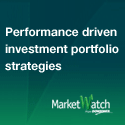Real Estate Investment Trusts or REITs as they’re often called come in two forms: public and private. Most investors are aware of public REITs as evidenced by the 19.4% year to date (as of Oct 12/10) increase in the iShares S&P TSX Capped REIT Index Fund, that is composed of REITs listed on the TSX. However, we’re willing to bet that not too many investors have heard of private REITs.
Private REITs are very similar to public REITs with the main differentiator being that they’re private companies and can only be accessed via an Offering Memorandum. Much like any other investment, private REITs have their benefits and drawbacks and to discuss these and many other details, we’re very pleased to present this next interview with the Founder and President of a private REIT in Ontario, Canada.
Biography: Mr Romundt is the founder and President of the Asset Manager, the Property Manager and Centurion Apartment REIT. He has been engaged in investment in residential real estate since 1997 and investments and financial markets since 1991. He has real estate investment experience in Singapore, Britain, Australia, China and Canada. From 1991 to 1997, he worked for Citibank in Toronto, New York and Singapore as a financial derivatives trader in interest rate derivatives, major and emerging currencies and exotic derivatives. From 1997 to 2001, he worked for AIG International Group in Hong Kong, Britain and Singapore as head of emerging market derivatives and then as Senior Vice President and Partner (Emerging Markets). He was the group risk manager, overseeing all of the firms positions in emerging markets and was a member of the risk management committee. He graduated from the Richard Ivey School of Business at the University of Western Ontario with an HBA in 1991.
Q: Can you tell us a little about your background and what prompted you to start a residential apartment REIT?
A: Well, I started out managing bank money and securities for a number of years. When you are in a securities house, having any kind of trading positions tends to fairly difficult, due to the conflicts of interest and numerous other difficulties. So real estate was kinda a natural thing because there was no conflict like with the securities business. Secondly, I was really looking for something in my portfolio which is a little bit more stable and income generating and I was always attracted to real estate because of its main characteristics: low volatility, inflation protection, income generation, tax efficiency. So I left the financial services business and working for other people in 2002 and decided to start my own firm with my own capital. We did that for a number of years and we sort of backed into the asset management business. Initially we really didn’t have any intention of taking other people’s money for investment but enough people pushed me and I said, ‘well, I’m already doing it so, why not?’ What I quickly figured out is that if you take one person’s money, you have to send them reporting. So, what’s the difference between reporting to one person, fifty or a thousand? Not much, right? You’ll have to employ accountants and all these other people to do your reporting. So if you build that infrastructure, you might as well leverage it. We then started expanding that business. We launched our first fund in 2006, basically three and a half years after I founded the firm with my own capital and then began to raise capital for the fund. It was a capital growth oriented fund, focused strictly on apartment properties. When the financial crisis came around in 2008, there were a couple of things that really highlighted to us why we should convert the fund to a REIT because number one, the end of this year (2010), the income trust tax exceptions go away and they start to become taxed like corporations. So, that was a big secular-type event. Secondly, with the stock markets being down so dramatically in the blowup of these complex financial products, I thought that there would be this core movement of people away from the equity culture which is where you’re advised to put all your money in stocks (80, 90 or 100% of it) and invest for the long term. I think people lost a lot of faith in the stock market during the crisis of 2008. So, they are looking for alternatives that are more stable, maybe more understandable and certainly tax efficient and income generating. Rates went down to zero. So if you put your money in a bank, maybe you’ll get one per cent. You know for a retiree, and I would say most of our investors are older persons, that simply won’t cut it. Also, retirees like their tax efficiency. They’re more than anything else, income driven. And the third biggest thing, if not equally ranked, is safety of principle. So many people saw 50% of their net worth wiped out in a very short span of time with the stock market crash and they don’t want to see that happen again. So, I would say when 2008 came along, we thought, that this was a perfect environment for what our firm had to offer to individual investors. A stable product that is based on apartments buildings being a basic needs industry. So, you know, it gives this security of capital and then there was tax efficiency and the ability to earn a reasonable yield. And on top of that, Canada‘s one of the few places that didn’t implode, although our stock market still felt that massive volatility. Our banks are still lending and largely still solvent. The economy’s still okay. So, all these things kinda tie together and the product almost designed itself. So it took us about nine months to actually put the product together as it takes a tremendous amount of legal and preparatory work before a launch. So we used the REIT structure and amalgamated it with our other funds and launched August 31st of 2009. We’ve been taking investments from individual investors since that time. Prior to 2006, the only way someone could have invested in our fund was to either be a friend of Greg (i.e. me) or you had to be an institution and we had a number of institutions that were invested with us.
Q: Why choose residential apartments as opposed to commercial or industrial real estate?
A: Well, that is dead pan simple for us. Apartment buildings have the least risk of any of the real estate classes simply because we are a basic needs industry. Our average rent is around $775 a month. We’re renting mostly to people to whom rent is not a discretionary item. It’s either they pay their rent or they’re homeless. So we’re, ranked right up there with food. In a slow economy, people still need to rent and that’s not true with hotels, retail plazas, industrial offices. People in a slow economy do not need to start new businesses but they’ll always need a place to live.
I would never invest in commercial classes of real estate because:
I like the stability and security of knowing that all other things being equal, the need for my business doesn’t go away. If I’m earning $800 on a unit and the rental market’s soft, I cut my rent by $50 and I’m going to fill the unit. Maybe I won’t make that little bit of extra money that I want to make but I’m still going to be there in a year or two years, when I can re-adjust my rent up. Part of my view of how I manage my own capital is that it’s far more important to survive the downturns and have stability of capital than it is to always be maxing out on returns. I could’ve put my money into juiced up hedge funds but I chose not to because I would rather have the knowledge that my assets are based on bricks and mortar (or what are considered hard assets) that are going to be here today and tomorrow and not much is going to reduce the demand for them.
Everyone says volatility in the stock market is good because that gives the smart traders the chance to get in and out. Well, the overwhelming evidence is that very few people are actually able to do that. 85% of fund managers can’t outperform S&P 500 index. If you look at it, the people who did outperform, only a small proportion of those, something like ten or fifteen percent continue to outperform in the following non-interlinked five year period. In other words, I don’t see a point in active management. So I’m very much in the index crowd. Take that to the individual level, when the market is down 50%, how many individual investors do you think, decide, now that my equity allocation is gone from sixty to thirty I should be re-balancing back to my sixty percent goal? Very, very few. If anything, at best they do nothing. At worst, they puke. So, volatility of the investment in my view helps to contribute to the greatest reason people fail individually or institutionally as investors. So they will act exactly at the wrong time, in the wrong way. If you have an investment which is reasonably stable, you don’t get panicked out. So you stay in for the long term because earning money in the long run means surviving the downtime and it’s really time in market, not timing the market. So, I think real estate and particularly apartments give you the ability to earn superior returns to mutual funds because you don’t get scared out at the bottom. You tend to sit there and while you’re not going to get rich, you’re also not going go get poor at the same time. It’s a consistent and stable performer with low volatility.
Q: What are the benefits of investing in private REITs as opposed to a public one?
A: The volatility of the stock market has been a significant turnoff for a number of investors and one of the reasons why you invest in REITs, I mean the properties aside from the cash flows and tax efficiencies, is the diversification away from the stock market. The problem is when you take a REIT and list it publicly, your correlation to the stock market goes up quite significantly. So if you actually run a correlation between the returns on the real estate underlying the REIT and the share value of the REIT, you’d almost think there’s two different assets because you’ve got stock market overlay risk. So I think the reason why people invest in private real estate is because we’re giving them the closest thing to actually owning the building without having to do any of the work. Without necessarily having to expose them to the stock market risk. People who invest in publicly traded REITs, I think, found out in 2008, 2009 that what they thought was a diversifier away from stocks was not in fact a diversifier. So I think we are closer to a true diversifier than a publicly-traded REIT.
Q: On that note, how often is Centurion REIT’s NAV (net asset value) adjusted? Also, how do you calculate the NAV for an investor who wants to pull out their funds midway between 2 NAV adjustment dates?
A: Centurion’s NAV is adjusted monthly and we have a redemption cycle. We need thirty days notice prior to the fifteenth of the month in which you want to redeem your units. So let’s say you wanted your money back on November 15th, you would have to tell us on or before October 15th. So it’s thirty days from the month prior, on the fifteenth.
Q: How much do investors pay in the way of fees?
A: We have a base asset management fee of 1.5%, which we think is fairly competitive. Then we have a 5% stake in the ongoing equity and distributions of the REIT so as we increase distributions and create equity growth, we participate in that on top of our own equity position in the REIT.
Q: To follow up on that, on the Centurion Apartment REIT website, it indicates that investors receive 8% annual distribution (paid monthly). So what happens if cash flow for any given period amount to greater than the required 8% payout?
A: We increase the NAV. So if we earn 10%. Then an investor would still get their 8% cash return but there would also be 2% of NAV appreciation. You have to keep in mind that we’re an equity-based investment. People aren’t lending us the money. We are an equity-based investment and the investor gets 95% of all the upside.
Q: What are the risks of distributions falling below that stated 8% mark?
A: Just like any real estate enterprise, we could have operational difficulties. Or we could have the cost of funds rise dramatically, which squeezes our margins. We could have rents fall. Or we could have expenses rise faster than your rents. Our revenue stream is far less volatile than the commercial sectors. In a recession, a hotel may have to drop their rates very substantially. Or in an office tower, if the market heads down, they might not be able rent their space at any price. So that’s whats different with apartment buildings. Generally the worst that happens is you have to cut the rent by a small amount and that usually moves the unit. So, I can’t say that we are riskless because that would be irresponsible for me to suggest. But I do think that we’re in the least risky part of the real estate industry.
Q: On the Centurion Apartment REIT website it mentions that you have a two step investment process. Do you want to talk about that a little bit?
A: Our acquisition process begins from the ground up. Before we invest in a community, we’re looking for positive population demographics. So cities like Windsor would never qualify because they’ve had a declining population and declining economy for more than a decade. In our view of the world, if you’ve got a declining population, you could be the best landlord but you’re still going to have pressure on your rents and on your vacancy levels because there are not enough bodies to rent to. So we’d much rather be in regions where you’ve got a growing population, where there’s jobs and low unemployment. As then, people need places to rent. So these are the first things we’re looking at. Once we’re comfortable with this city, our analysis turns to particular neighbourhoods to invest in.
Not all cities are the same. Take Toronto for instance, people say, ‘I’ll invest in Toronto’ and I say, “well, okay but what is Toronto?’ Toronto is made up of dozens of different communities and not all of them, we would invest in. Investing in any particular city does not necessarily mean just anywhere in the city. So we drill down from a broad to a narrow focus with our analysis and research to find the right neighbourhoods to invest in.
What we look at next is the building itself. We like to buy buildings where, generally speaking, we think we have some financial upsides, that is things that we can do to improve the asset. So, once we’re down to asset specific due diligence, then we have a fairly detailed process. We do financial due diligence where we bring in third party consultants to do an appraisal, so we’ve got backup, in case we’ve missed anything. We do physical evaluations through building condition surveys and environmental surveys. We’ll bring in fire consultants to consult on the systems. We’ll bring in engineers to consult on building systems like boilers, energy audits etc. If we get through that and can negotiate the price, then we’ll buy. Sometimes, even if the building is a great building, it might not be priced appropriately. So, before we make a purchase the decision has to get though all these various filters, such as, is it in the city/neighbourhood we want? Is the tenant demographic a good one or is it a bad one? And being a bad one is not necessarily a bad thing if I can change it, because it’s in a good neighbourhood. We then look at the physical infrastructure and try to determine what we would have to spend to fix this place to bring it to our standard of quality. After that, we put this all information into your financial model to determine if a purchase makes sense or not. It’s a tremendous amount of work to get to, to get to a final close on a property.
So, when we find property that we’re interested in we send our entire team. Every team member kind of converges on the building on a given day. We get all of our due diligence work done. We can usually move pretty quickly and that’s, I think, an important source of competitive advantage in this industry. People, when they sell their building, they want you to close. They don’t want to do the deal five times before they actually sell it as it’s very frustrating that way. So, having the reputation of being a closer is an advantage and certainly very important part of what we do.
Q: The words ‘tax efficient’ or ‘tax advantaged income’ appear frequently on the Centurion Apartment REIT website, can you, elaborate on that a little bit?
A: Absolutely, because of one of the key characteristics of a REIT is because you own real property, the government allows us to deduct capital costs allowance or otherwise known as depreciation against the tax bill that comes off properties. So, in most years, the cash that we distribute to our investors is tax deferred. So, with a little bit of planning, most of our investors can earn tax deferred income for many, many years. And when they do realize the taxes on their investment by exiting or selling their units, they pay capital gains taxed in the back end. So, we’re structured very tax efficiently. It’s one of great advantages of real estate.
Q: Can you talk about some of the risks of investing in a private REIT as opposed a public one or, or just in general?
A: Well, let’s go on the basis that the real estate industry risks are the same between a public and a private REIT. We’re assuming that they own the same types of assets. We have a board of trustees just like a public company has trustees. We have auditors, just like a public company has auditors. We have all that corporate governance control procedures just like a public company does. The only real difference is that public companies are required to file certain types of information on a regular basis on SEDAR and with the regulators.
I believe we maintain a similar amount of disclosure to our investors but the difference is when you are a private company this is discretionary disclosure. So we do that voluntarily, not because it’s required by law. So, I would say the biggest difference between a public and a private REIT is that very often with a private, you may not be as familiar with the operators as you would with a public company. Depending on the operator, you have to ask whether they’re providing you with the information you want as if it were a public company. In our case that, I think we maintain similar disclosure levels as public REITs.
So, how does the investor assure themselves that they’re going to get what they bargained for? I think the answer’s pretty straightforward. You have to do some homework on who the operator is? Is it a shareholder democracy? Can management be fired? Who appoints the board of directors or the board of trustees? What’s the quality of the reporting? Are there audits and are the people you’re dealing with honest? The honesty thing goes beyond just being private because a lot of public company executives are crooked too. So, I don’t think there’s more crooks in this space but for any investments that I would be looking at, I would certainly be looking at who’s running it. Have they been sanctioned? Are they reputable? Do they pass the smell test?
Q: Just to follow up on the previous question, where or how can any one who’s looking to do some due diligence on Centurion or any other private REIT, find things like financial statements etc.?
A: They can call us at 1-888-737-REIT . We do have financial statements that are published and audited. Second thing is, you can Google a company and each of the principles real easily. Google is a very powerful tool. It’s pretty easy to find out if there’s any problems and if there are problems, you’re going to show up in the blogosphere or in the papers. So it’s pretty easy to screen people that way. The other thing is, you could go the website of the provincial securities regulator in which the REIT is registered in, like we’re based in Ontario, so investors can go to the Ontario Securities Commission, to check whether the REIT is registered or regulated. We are. We’re registered and you can see if there are any sanctions against us. Another thing I would recommend is that investors sit down with management managers or talk to them over the phone.
Another difference between a private and a public REIT is that in a public company, investors can move in and out of the stock at a moment’s notice. Whereas, I believe that private equity or private REITs are really more of a long term investment. We’re not designed to be an in and out money market type of vehicle. Which means, doing your due diligence is all the more important. Investors have to read the offering Memorandum (OM) to see what they’re buying.
Q: If you were to counsel someone with regards to the metrics that are important when assessing a REIT, what would you tell them?
A: You have to ask about things like payout ratios, debt ratios, operating targets and where they stand currently as well as what are the maximums. You could even ask them what their implied cap rate is built into their price. You should also ask things about who does the appraisals and how that whole process is carried out. I’m not a huge believer in metrics like price to AFFO ratio because I think they’re unreliable. I’m a believer in net asset value, distribution ratios and leverage ratios. If your leverage is low enough or not irresponsibly high, things can’t go that bad. If you’ve got very high levels of leverage, things could go really bad. So I would be concerned about the distribution rate and find out how they are achieving it. If it is reasonable and sustainable? And, if their leverage ratio is realistic?
Q: Now to turn the tables a little bit, what would be Centurion’s leverage, distribution and payout ratio?
A: We aim to distribute 100% of free cash flow. Our operating targets for leverage are between sixty two (62) and sixty seven (67). Our cap is seventy five (75). Our current is around sixty one (61).
Q: There’s been a lot of commentary from a number of people recently claiming that the Canadian real estate market is in a bubble and is about to pop. Or if not that, then it’s seriously overbought and prices are about the come down. From your vantage point as asset manager, what are your thoughts on this topic?
A: I actually do have a very specific view. I believe that without a doubt Canada has got a housing bubble however I don’t believe that it’s going to be explosive on the downside. Part of the reason I believe that is normally big housing crashes tend to happen because of big shifts in the economy and large increases in interest rates or the reductions in the availability of credit. As far as the housing sector goes, I do believe that prices have overextended and will likely come off. My forecast is for 10% in the next year and stagnant returns on housing for another decade. So, I forecast minimal appreciation in the housing sector for a long period of time. Part of that is because I think too many people bought houses. They got too excited with low interest rates. Rates are going to stay low, I’m convinced, for a considerably longer period of time and that will prevent an outright rout in the market.
There are generally two ways in which most housing bubbles deflate. The first one involves an initial price blowoff. The second way involves prices just sitting still, meaning real depreciation in house prices over a long period of time. Now, how does that impact the commercial sectors? One of the biggest misconceptions that people have when they are discussing real estate is that they assume all real estate is the same and it’s not. Apartment buildings tend to be slightly negatively correlated with housing and the economy in general. Part of the reason for that is, when the economy is soft, people aren’t buying houses but since they have to live somewhere, they’re renting apartments. The opposite is true when the economy is booming because then people want buy a house. That tends to be our operating metric. We do better in slow or poor economies than in good or great economies.
That’s part of the anti-cyclicality of real estate. I am convinced that the housing market has overshot but that the commercial sectors have not, particularly the apartments. There are a few things that are going to drive that, like interest rates. I believe interest rates in Canada are going to stay anchored where they are for a considerably longer period of time than most analysts, I think, believe. Second is, with the income trusts going away, there are not many tax efficient vehicles left. So that bodes very well for REITs and real estate. Thirdly, if yields stay so low then the appetite for yield will remain high. So I see quite a bit of momentum behind the commercial sector of real estate for the next, least two years.
Thank You, Mr. Romundt!










